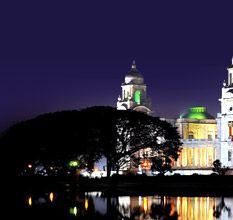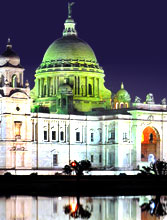 Darjeeling tea is internationally renowned for its floral fragrance, astringent features and musky spiciness. It is considered to be the one of finest qualities of black tea grown anywhere in the world. Unlike other Indian teas, which are produced mainly from the large-sized Assamese leaves, Darjeeling tea is processed from the small-leaved Chinese variety of 'Camellia Sinensis' plant. Just as authority of Champagne production solely lies with the Champagne district of France, Darjeeling tea is indigenous to Darjeeling, West Bengal.
Darjeeling tea is internationally renowned for its floral fragrance, astringent features and musky spiciness. It is considered to be the one of finest qualities of black tea grown anywhere in the world. Unlike other Indian teas, which are produced mainly from the large-sized Assamese leaves, Darjeeling tea is processed from the small-leaved Chinese variety of 'Camellia Sinensis' plant. Just as authority of Champagne production solely lies with the Champagne district of France, Darjeeling tea is indigenous to Darjeeling, West Bengal.The tea plantation in Darjeeling started around 1852, when it was a thinly populated city. The first commercial tea gardens planted by the British, in the hill resort, included Tukvar, Steinthal and Aloobari tea estates. The seeds used at that time were produced in Government nurseries and the labor was imported from Nepal. By about 1866, Darjeeling had 39 tea gardens and an annual production of 21,000 kg of tea. At present, Touzi section deals with the control & supervision of all the tea gardens in the Darjeeling district.
In the present times, Darjeeling officially owns 144 tea gardens, which are spread over an area of 74843.82 acres. Some of the most popular tea gardens include Arya, Chamong, Glenburn, Lingia, Castleton, Jungpana, Makaibari, Margaret's Hope and Risheehat. The current annual production of Darjeeling tea gardens is 10 million kg of tea. It has been legally administered that that tea produced in the 144 defined tea gardens in Darjeeling district of West Bengal can only be sold as 'Darjeeling Tea'.









